Oh man, bushing teeth is so hard for adults and kids. This had the potential to be a very very long post because there are so many reasons why teeth brushing is hard for neurodivergent people.
So we'll call this Part 1 with Part 2 to be released whenever the inspiration strikes.
So, why is toothbrushing hard?
It might be hard because:
It’s Boring
Let’s be real, there’s not a lot that’s fun about brushing your teeth. Do you want to do something that’s not fun?
Your kids don’t either. As adults, we understand that it’s necessary to brush our teeth because it keeps us health, but kids don’t have that ability to think or plan that far into the future. They see something they don’t enjoy and avoid it because it’s just boring.
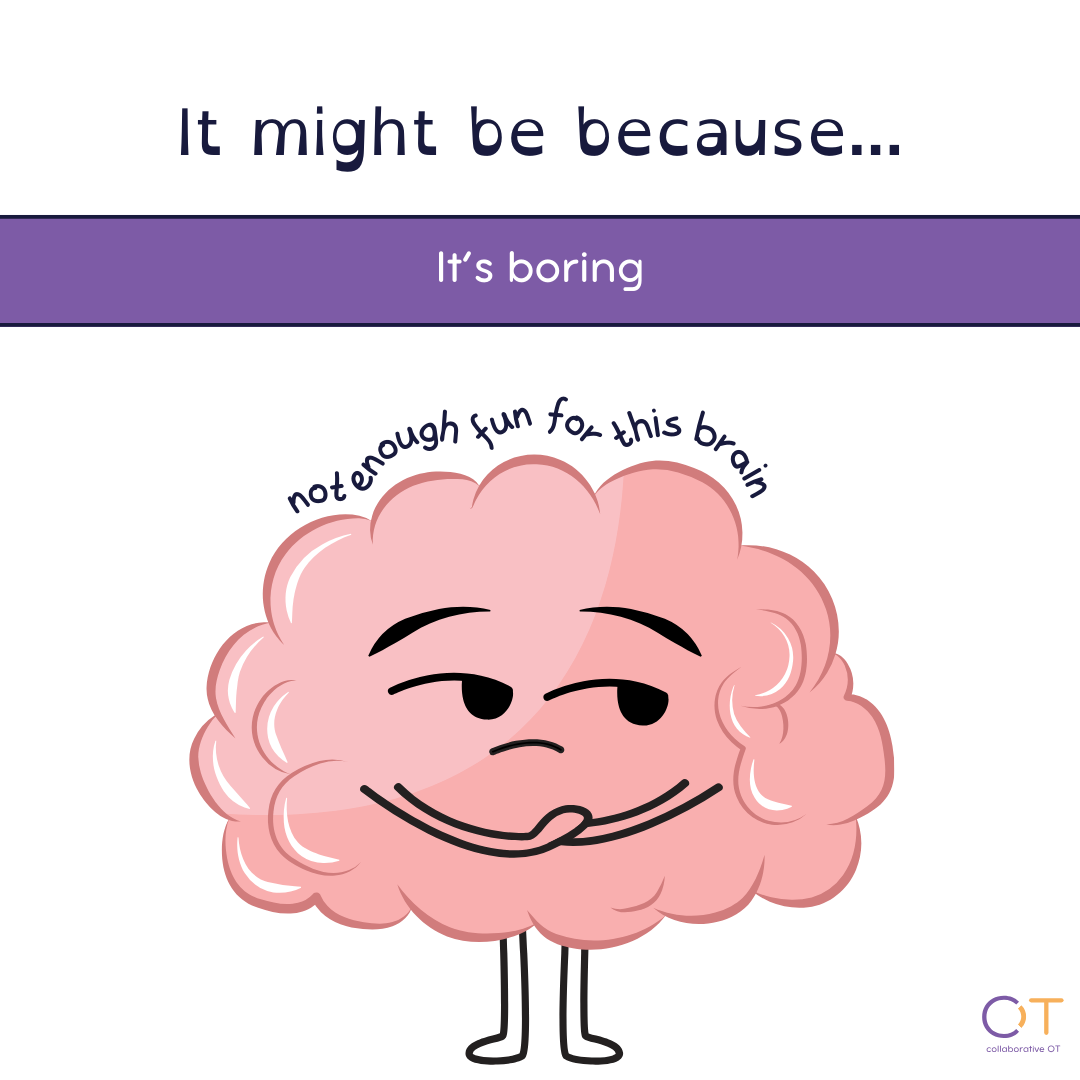
The sensations are hard
A lot kids who have sensory difficulties might avoid brushing their teeth because toothpaste tastes gross.
Minty toothpaste can feel hot, spicy, cold, and strong all at once.
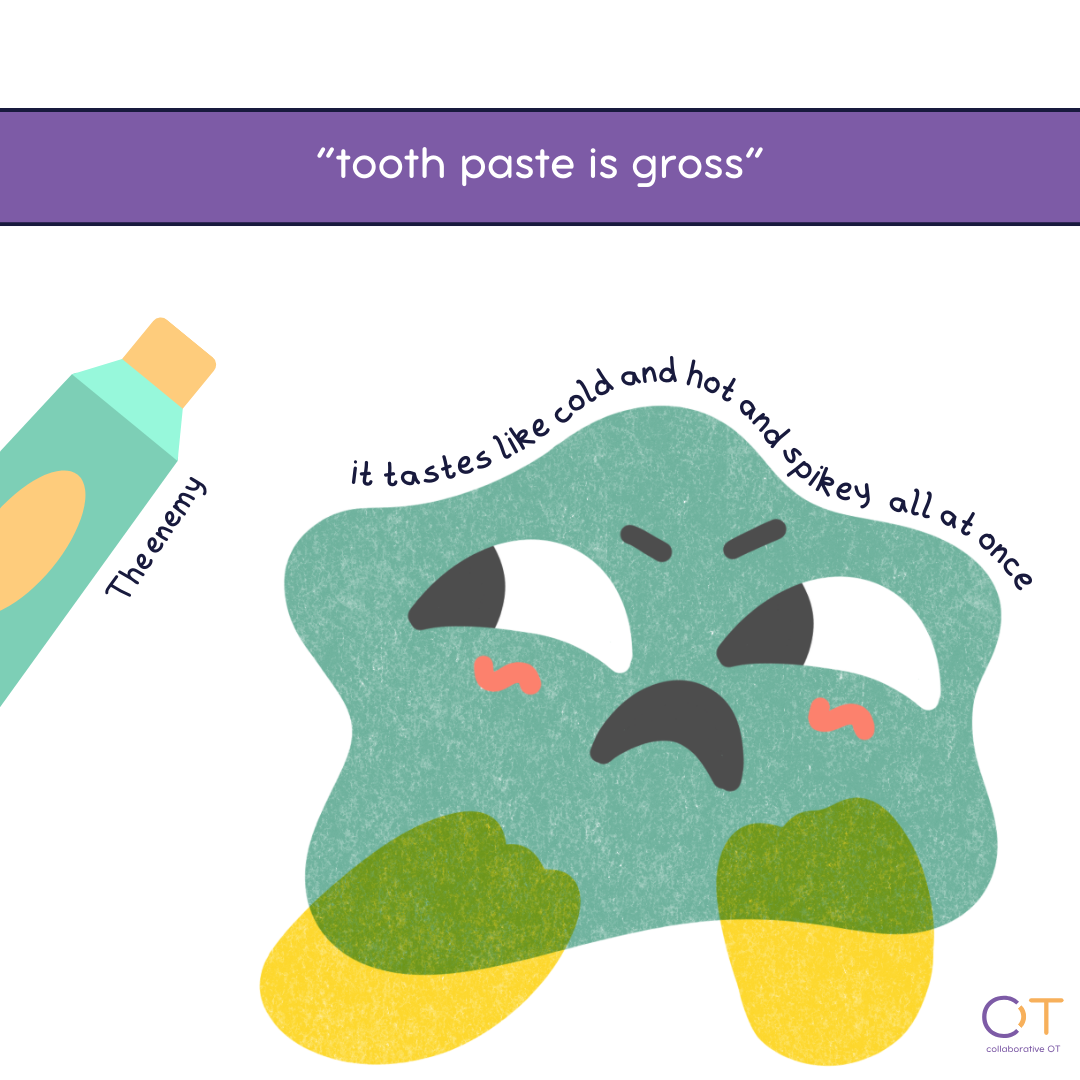
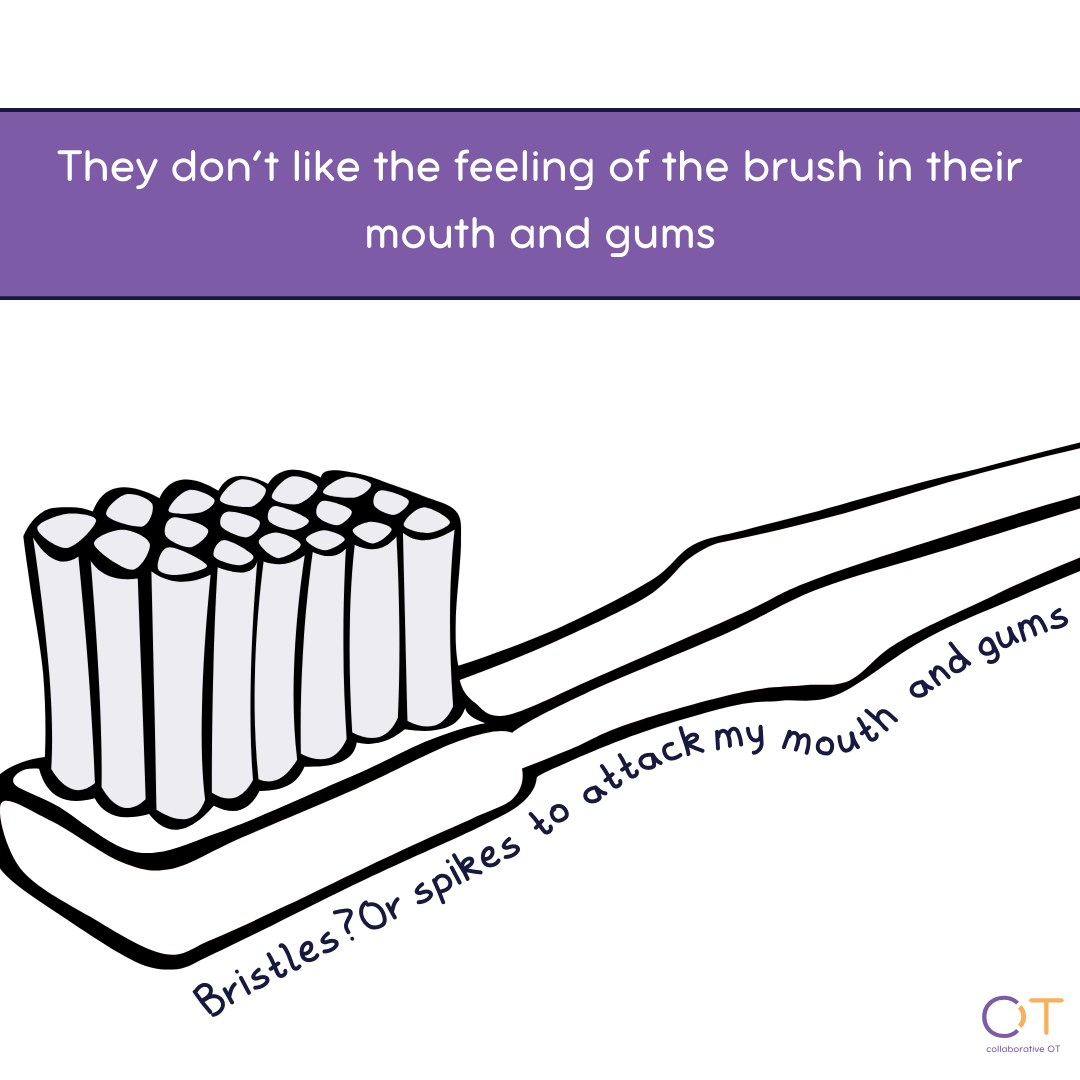
Outside of toothpaste, the bristles and brushes across the gums and teeth can feel spikey, painful and uncomfortable.
Many kids also have trouble with tooth brushes in their mouths as it can activate their gag reflexes. And we all know that that’s not fun at all
So how do we help make tooth brushing easier?
Changing the equipment
Different flavoured toothpastes like bubblegum or mango can be a great alternative for mint. If that still doesn’t work, brushing teeth without toothpaste is better than not brushing at all.
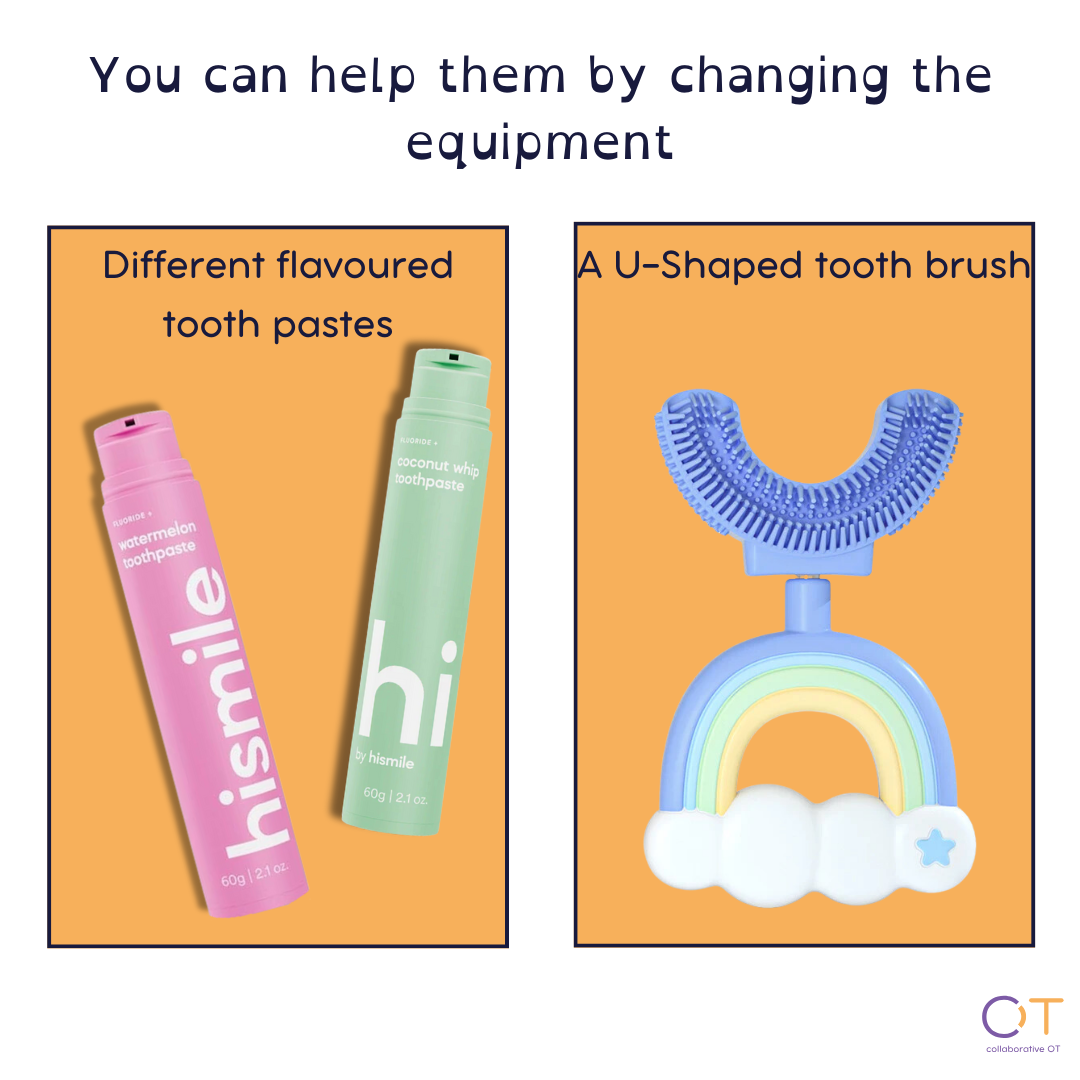
U shaped toothbrushes are also a lot easier for a lot of people. They’re often softer, have less chance of activating a gag reflex. Because of their larger surface area, you also don't have to brush as long which can makes things a lot easier too
Change the environment
Brushing teeth with someone, like a parent or sibling can make it much more tolerable and easier to do. We call this Body Doubling
Even putting on a fun song to brush your teeth to is a way of making the whole thing a bit more tolerable.
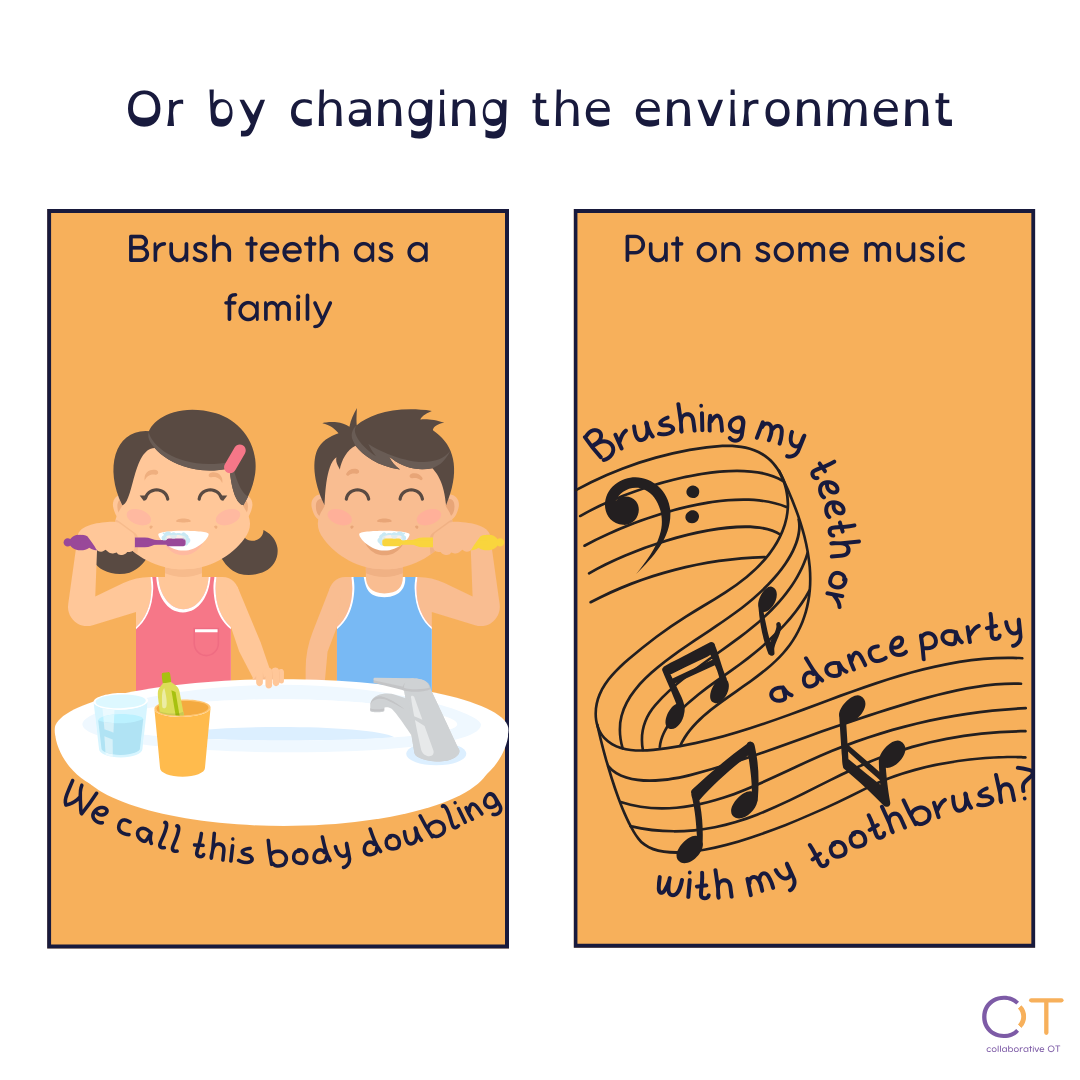
Change the Process
Grouping Teeth Brushing with ‘like’ activities can make the transition to tooth brushing easier. This could look like brushing in the kitchen after breakfast; they’ve just done an activity that involves their mouth, tack on teeth brushing too!
Or brushing teeth in the shower or bath; you’re already washing the rest of your body, why not teeth as well?
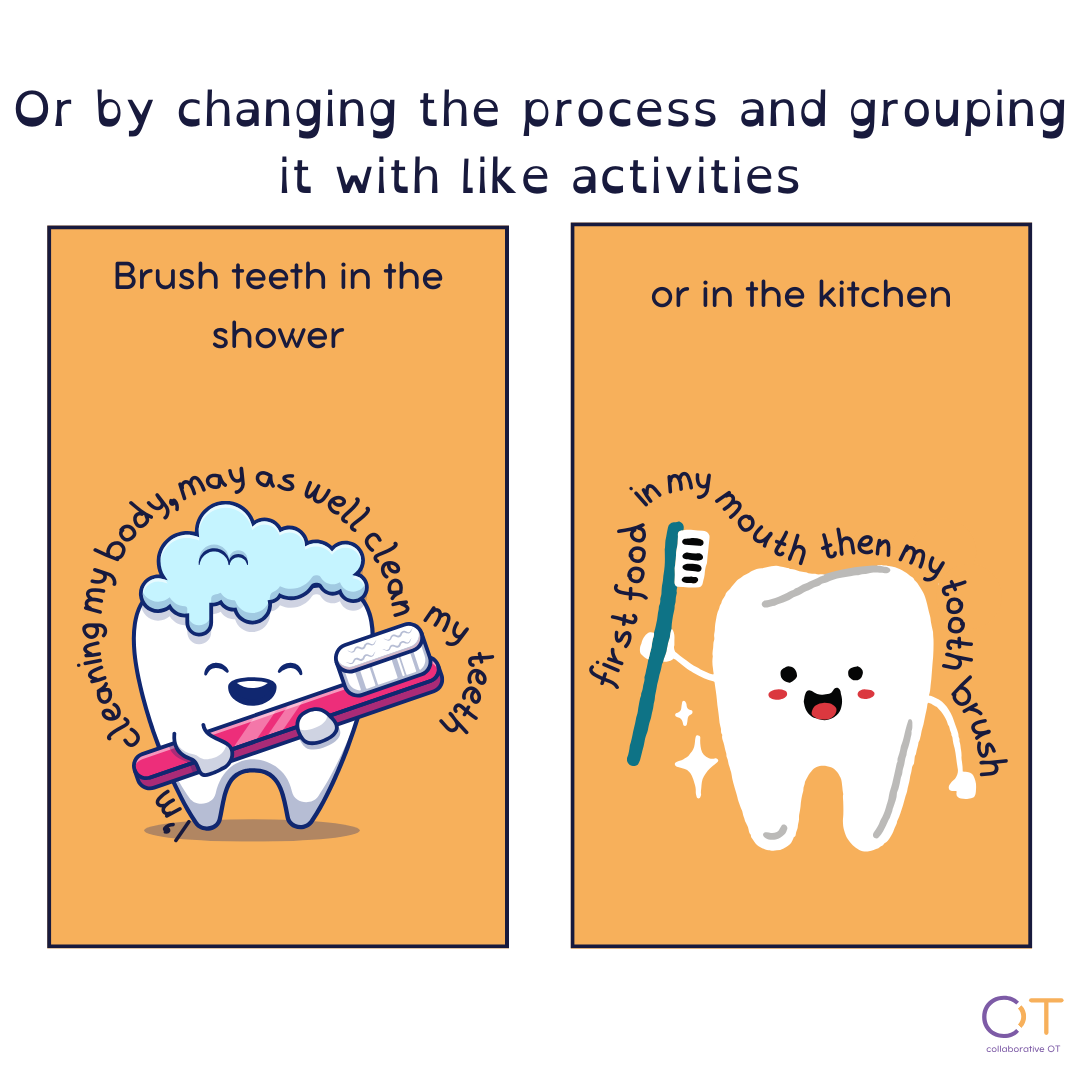
Something is better than nothing
We all know the recommendations around teeth brushing; brush twice a day after meals for 2-3 minutes. Oh, and don't forget to floss!
For so many neurodivergent people, the repetitive, recurring nature of this is unobtainable. And if you can’t do the task fully, why bother at all?
Because a little bit is better than nothing.
Brushing teeth once a day is going to be so much better than not brushing at all
Brushing as soon as you get home from school is better than not brushing at all
Brushing with no toothpaste is better than not brushing at all
Flossing without brushing is better than no tooth care at all.
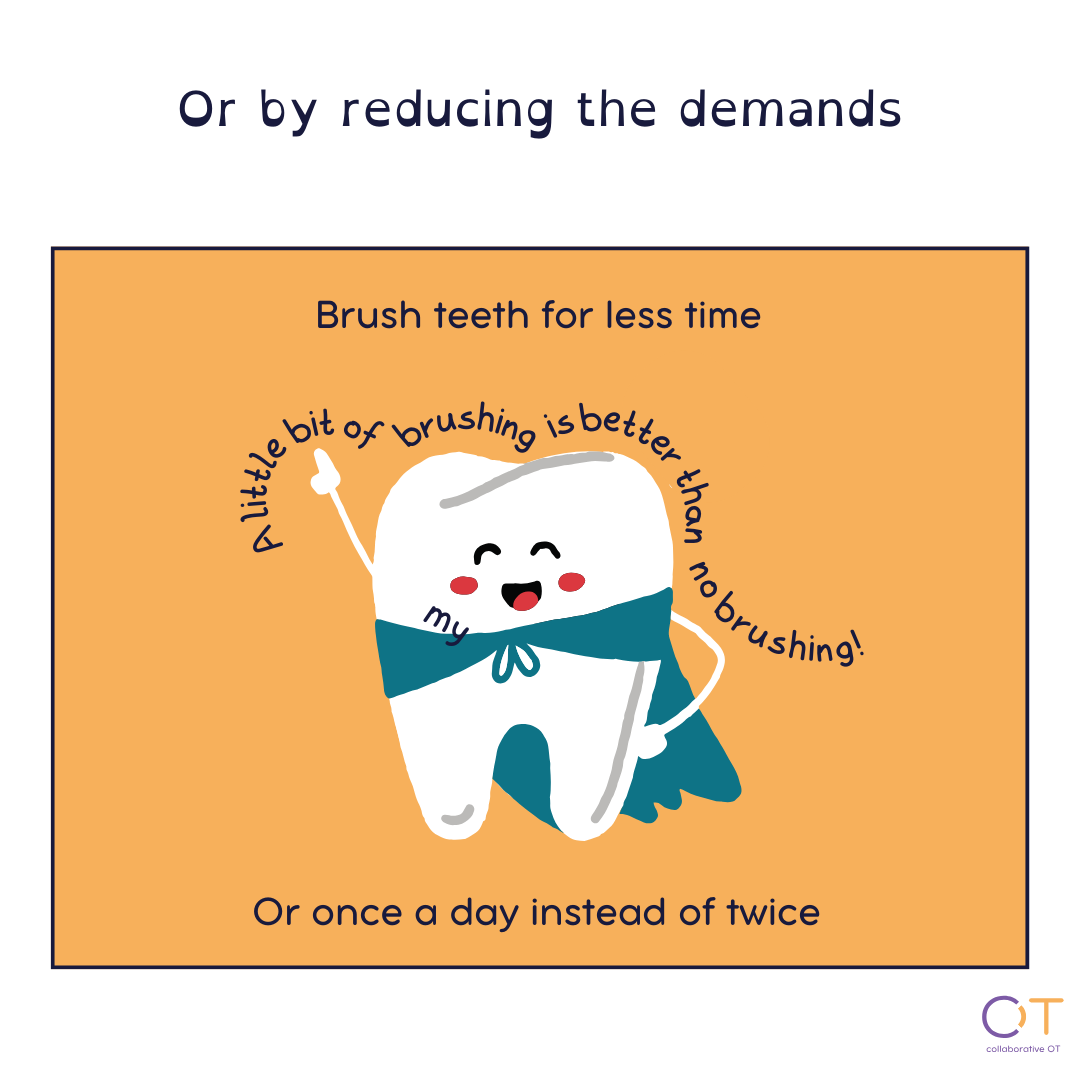
So, if you or your child is having difficulty with teeth brushing remember:
- Something is better than nothing
- Try different toothpaste or brushes
- Try new ways of doing
- Try ways of making it fun!